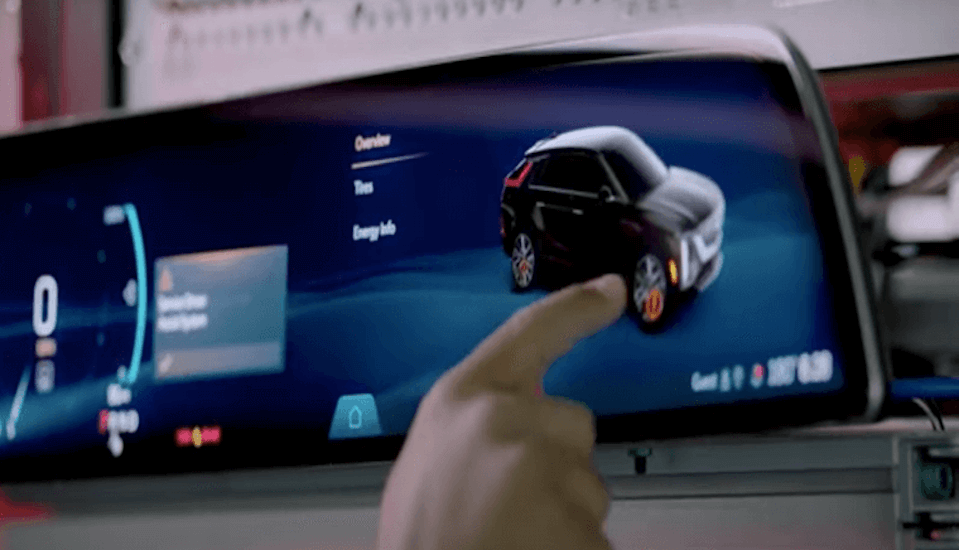
The News: General Motors and Red Hat announced a collaboration aimed at advancing software-defined vehicles, a significant convergence between the technology and transportation industries. Read the Press Release from Red Hat here.
General Motors, Red Hat Collaboration Geared Toward Accelerating Software-Defined Vehicles
Analyst Take: A newly announced collaboration between General Motors and Red Hat, the world’s leading provider of open source software solutions, is intended to help accelerate the development of new features for software-defined vehicles. The partnership centers around the Red Hat In-Vehicle Operating System, a functional-safety certified Linux OS, which will serve as the foundation for General Motors’ Ultifi end-to-end software platform. Ultifi has a planned phased rollout beginning in 2023, and the integration of Red Hat’s operating system will allow for much faster development of valuable features.
General Motors and Red Hat’s collaboration on new features, apps, and services for software-defined vehicles is an exciting convergence between the technology and transportation industries at a time when software-defined features are an important differentiator for vehicle brands. Consumers looking to the future of the driving experience will benefit from accelerated development and innovation enabled by Ultifi’s Linux-based system, including the ability of GM-authorized third-party developers to experiment with leading edge features. Software-defined vehicles offer a particularly rich opportunity in the smart device ecosystem, as they provide access to a variety of sensors and anonymized data.
Collaboration Adresses Safety, Cybersecurity Risks of Software-Defined Vehicles
Of course, it’s a given that safety and security are a primary concern in the development of software-defined vehicles, as critical safety priorities demand high level cybersecurity protections and safety certification. The partnership between Red Hat and General Motors aims to ease the complex vehicle update process through implementing continuous functional-safety certification into Ultifi. This highlight of their collaboration should make it easier to standardize new software development and create a more scalable design process.
Software-defined vehicles should receive a valuable jumpstart from this emerging partnership between industry-leading open source and automotive institutions. Open source innovation stands to benefit consumers and the automotive industry as a whole by enabling a host of potential cloud-based services and accelerating the development process for new features that will redefine the driving experience.
Disclosure: Futurum Research is a research and advisory firm that engages or has engaged in research, analysis, and advisory services with many technology companies, including those mentioned in this article. The author does not hold any equity positions with any company mentioned in this article.
Analysis and opinions expressed herein are specific to the analyst individually and data and other information that might have been provided for validation, not those of Futurum Research as a whole.
Other insights from Futurum Research:
Red Hat Lowers Barrier to AI Adoption and Updates Core OpenShift Platform
Intel and Red Hat Aim to Streamline 5G Deployment and Adoption Process
Image credit: Red Hat
The original version of this article was first published on Futurum Research.
Shelly Kramer is a Principal Analyst and Founding Partner at Futurum Research. A serial entrepreneur with a technology centric focus, she has worked alongside some of the world’s largest brands to embrace disruption and spur innovation, understand and address the realities of the connected customer, and help navigate the process of digital transformation. She brings 20 years' experience as a brand strategist to her work at Futurum, and has deep experience helping global companies with marketing challenges, GTM strategies, messaging development, and driving strategy and digital transformation for B2B brands across multiple verticals. Shelly's coverage areas include Collaboration/CX/SaaS, platforms, ESG, and Cybersecurity, as well as topics and trends related to the Future of Work, the transformation of the workplace and how people and technology are driving that transformation. A transplanted New Yorker, she has learned to love life in the Midwest, and has firsthand experience that some of the most innovative minds and most successful companies in the world also happen to live in “flyover country.”

